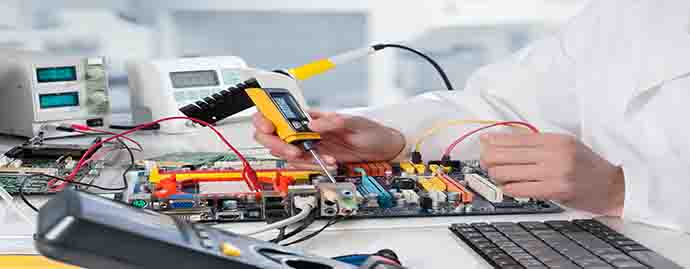| Start Date | End Date | Country | City |
|---|

 +966 920007771
+966 920007771

Objectives
Upon completion of the course participants will be able to:
- Specify protection requirements for motors o Maintain electrical motors
- Specify speed control requirements for motors
- Understand essentials of motors and drives
- Detail the main issues with testing of motors
- Prevent or at least minimize motor bearing failure
- Troubleshoot and fix faults on motors and drives
- Interface control circuits of motors with PLC’s/DCS’s
- Reduce downtime on electrical motors
- Improve plant safety
- Improve plant throughput
- Reduce your spares usage and requirements
Outlines
Day 1: Basic Theory and Operation
- Types of electric motors
- Rotating Magnetic Field
- DC motors and applications
- Single Phase and Three Phase AC Motors
- Induction and Synchronous Motors
- Squirrel Cage Motors
- Wound Rotor Motors
- Single speed and variable speed motors
- Single voltage and dual voltage motors
- Unidirectional and reversible motors
- Efficiency & Power factor
- Standardization & Classification of motors
Day 2: Synchronous and induction motors
- Synchronous speed and slip
- Synchronous condenser and excitation control
- Constant speed applications of synchronous motors
- Three-phase induction motors types and applications
- Torque speed characteristic for motors
- Starting methods for single phase motors
- Split phase and capacitor start
- Refrigeration and A/C compressors starting
- Motor control centers and components
- Reading schematic for motor control
Day 3: Motor Testing
- Stator winding
- Testing instruments and tools
- Factory tests
- Receiving tests
- Pre commissioning tests
- Insulation test and continuity
- DC resistance measurement and indication
- Rotor and field winding
- Terminal marking for dual voltage three phase motors
- Terminal marking for dual speed three phase motor
- Rotor ground fault check
- Squirrel cage bar disconnection test
Day 4: Maintenance of motors
- Inspection Techniques
- Troubleshooting Techniques
- Power circuit troubleshooting
- Control circuit troubleshooting
- Ground Fault and Short Circuits
- Routine and Preventive Maintenance
- Vibration causes and correction
- Mantling and Dismantling.
- Emergency repairs
- Rewinding data and procedures
- Spare Parts Requirements.
- Motor Storage for Long Periods
Day 5: Selection for Applications
- Properties of Motors and Applications
- Dc motor speed characteristics
- DC motor applications
- Domestic uses
- Control circuit for motors
- Machine Tools
- Air & air conditioning Compressors
- Servomotors and step motors
- Variable speed drive
- Discussion and answering questions
Who Should Attend
- Anyone associated with the use of electrical motors in the industrial or automation environment.
- The course will also benefit those working in system design as well as site commissioning, maintenance and troubleshooting.
- Plant Engineers
- Instrument Technicians
- Engineering and design personnel
- Operations personnel
- Electrical Maintenance Technicians
- Instrument and Control Engineers
- Electrical Contractors
- Electrical consulting engineers
- Process control Engineers
- Mechanical Engineers
- Service Technicians
- Maintenance Personnel
- Electrical Maintenance Supervisors
Duration
5 Days










